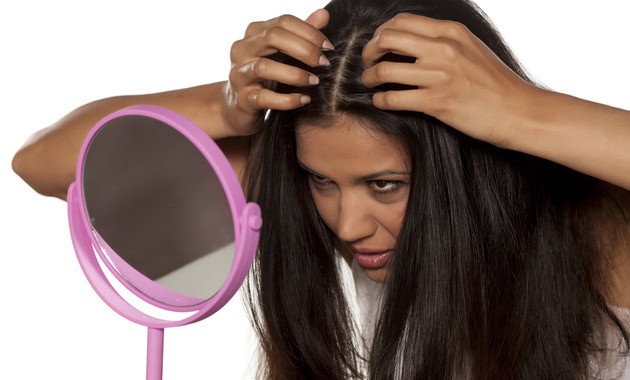
You are not alone. Dandruff affects around 50% of people worldwide at some point in their life[1]. Dandruff is a condition that causes skin on the scalp to flake and/or itch. The dead cells on the scalp stick together often because of surface debris and oil in the hair and shed at a faster-than-normal rate.
Keep your scalp healthy and fresh with our wide collection of shampoos and conditioners. Click here to buy now!
Dandruff should not be taken lightly because
– It may be pointing towards overgrowth of a fungus (called Malassezia) which despite being present on the scalp of most people does not cause any symptoms
– It can slow your hair growth
– It denotes a microinflammation, which might be easily overlooked as there are no readily observable symptoms.
Did you know?
Scalps with dandruff shed up to about 8 l
akh cells/sq cm compared to only about 5 lakh cells/sq cm in normal scalps[2].
Dandruff vs. Dry scalp
Both dandruff and dryness can get your scalp itchy and irritated. It is important to differentiate between the two as dandruff may require a treatment while dry scalp, usually improves with less frequent shampooing.
You are more likely to have dandruff if:
– Your scalp feels oily
– You experience intense itching even when the scalp does not feel dry
– Your hair looks greasy at most times
Confused about what is causing an itchy scalp? Get an expert’s advice Now. Consult Now
A quick check
Flakes due to dry scalp tend to be smaller and whiter. Dandruff flakes are larger and usually yellow-tinged or oily.
1mg Supertip: Look for the medicated shampoos containing ketoconazole, salicylic acid, zinc pyrithione, etc. to manage mild-to-moderate dandruff.
Signs your dandruff may be severe:
-Large areas of redness or swelling on the scalp
-Severe itching and worsened flakes over time
-Still having symptoms after using anti-dandruff shampoo for a month
Home Remedies For Dandruff
Coconut oil and camphor: Take 2-3 teaspoons of warm coconut oil and dissolve a pinch of camphor in it. Massage gently on the scalp at night. Wash your hair in the morning with a mild shampoo. Repeat it once or twice a week.
Oil that scalp well with your favourite hair oil. Explore Now
Apple cider vinegar: Take 1/4th cup of Apple cider vinegar in 1 mug of plain water. Pour this mixture evenly on the hair and scalp. Let it sit for 3-5 mins and rinse it with water. Do not keep for longer than 5 mins.
Reap the real benefits of apple cider vinegar with our all-new range of products.
Remember:
Shampoo often if you tend to have an oily scalp. Limit hair styling products such as styling gels, sprays etc. Practice yoga or meditation to manage stress. Keep your scalp and hair healthy with our exclusive range of herbal products.
(The article is reviewed by Dr. Swati Mishra, Medical Editor)
Recommended Reads:
Top 11 Natural Hair Fall Solutions – Do They Really Work?
Dandruff? These 5 Habits Could Be The Reason Why
References:
1. Borda LJ, Wikramanayake TC. Seborrheic Dermatitis and Dandruff: A Comprehensive Review. J Clin Investig Dermatol. 2015 Dec;3(2). https://www.ncbi.nlm.nih.gov/pmc/articles/PMC4852869/
2. Manuel F. Is dandruff a disease? Int J Trichology. 2010 Jan;2(1):68. https://www.ncbi.nlm.nih.gov/pmc/articles/PMC3002421/